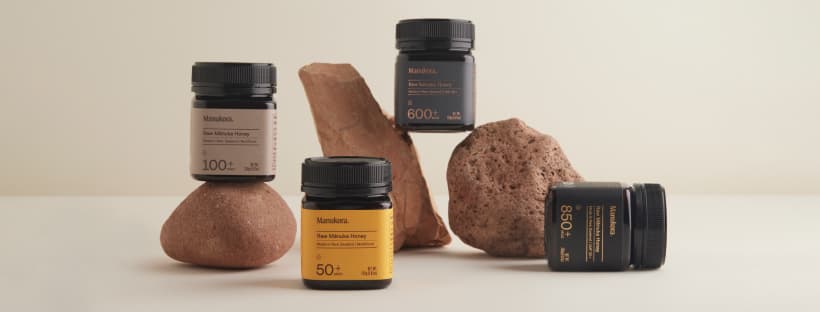Boosting your immune system naturally is essential for staying healthy and fighting off illnesses. By focusing on nutrient-rich foods, adopting healthy lifestyle habits, and understanding the connection between mental and physical health, you can strengthen your immune defenses. This article will guide you through various ways to enhance your immune system without relying on medications or supplements.
Key Takeaways
- Incorporate a variety of colorful fruits and vegetables into your diet for essential vitamins and antioxidants.
- Regular exercise helps improve circulation and strengthens your immune system.
- Getting enough sleep is crucial for your body to restore and defend against infections.
- Managing stress through relaxation techniques can positively affect your immune response.
- Stay updated on vaccinations to give your immune system extra support.
Nutrient-Rich Foods to Boost Your Immune System
Eating the right foods can help keep your immune system strong. Here are some key foods to include in your diet:
Citrus Fruits and Their Benefits
Citrus fruits are famous for their high vitamin C content, which is essential for a healthy immune system. Vitamin C helps increase the production of white blood cells, which are crucial for fighting infections. Popular citrus fruits include:
- Oranges
- Lemons
- Grapefruits
- Limes
Leafy Greens for Immunity
Leafy greens like spinach and kale are packed with vitamins and antioxidants. They help your body fight off infections. Eating a variety of these greens can provide:
- Vitamin C
- Vitamin A
- Antioxidants
Fermented Foods and Gut Health
Fermented foods, such as yogurt and kimchi, are great for gut health. A healthy gut can improve your immune response. Some benefits include:
- Better digestion
- Increased good bacteria
- Enhanced immune function
The Role of Berries in Immune Support
Berries, especially blueberries and strawberries, are rich in antioxidants. These antioxidants help reduce inflammation and support your immune system. Eating a handful of berries daily can:
- Boost your immune response
- Provide essential vitamins
- Help fight off infections
Eating a variety of nutrient-rich foods is key to maintaining a strong immune system. A balanced diet not only supports your health but also helps you feel your best.
Healthy Lifestyle Choices for a Stronger Immune System
The Importance of Regular Exercise
Regular exercise is essential for a healthy immune system. Just 30 minutes of moderate activity most days can make a big difference. Here are some benefits of staying active:
- Boosts circulation of immune cells
- Reduces stress levels
- Helps maintain a healthy weight
Adequate Sleep for Immune Health
Getting enough sleep is crucial for your immune system. Aim for 7 to 9 hours each night. During sleep, your body produces proteins called cytokines that help fight infections. Here are some tips for better sleep:
- Stick to a regular sleep schedule.
- Create a relaxing bedtime routine.
- Keep your bedroom cool and dark.
Stress Management Techniques
Managing stress is vital for a strong immune system. High stress can lower your body's defenses. Here are some effective techniques:
- Practice deep breathing exercises.
- Engage in yoga or meditation.
- Take breaks throughout the day to relax.
The Impact of Smoking and Alcohol on Immunity
Both smoking and excessive alcohol can weaken your immune system. Here’s how:
- Smoking damages your lungs and reduces immune function.
- Alcohol can interfere with the body’s ability to fight infections.
- Reducing or quitting these habits can significantly improve your overall health.
Maintaining a healthy lifestyle is not just about avoiding illness; it’s about thriving and feeling your best every day.
The Role of Vitamins and Supplements
Essential Vitamins for Immune Support
Vitamins play a crucial role in keeping your immune system strong. Here are some key vitamins that help:
- Vitamin C: Helps in the production of white blood cells.
- Vitamin D: Supports the immune response and may reduce the risk of infections.
- Vitamin E: Acts as an antioxidant, protecting cells from damage.
Herbal Supplements and Their Effects
Herbal supplements can also boost immunity. Some popular options include:
- Echinacea: May help reduce the duration of colds.
- Elderberry: Known for its antiviral properties.
- Garlic: Can enhance immune function and fight infections.
When to Consider Taking Supplements
While a balanced diet is best, supplements can be helpful in certain situations:
- If you have a restricted diet (e.g., vegetarian or vegan).
- If you are elderly and may not get enough nutrients from food.
- If you have specific health conditions that affect nutrient absorption.
Taking a daily multivitamin can help fill in the gaps in your diet, but remember, more is not always better. Stick to recommended doses.
The Connection Between Mental Health and Immunity
How Stress Affects Your Immune System
Stress can have a big impact on your immune system. When you are stressed, your body produces hormones that can weaken your immune response. This means you might get sick more often. Here are some ways stress affects your health:
- Reduces the number of white blood cells, which help fight infections.
- Increases inflammation in the body, making it harder to heal.
- Can lead to unhealthy habits like poor eating or lack of sleep.
The Benefits of Positive Thinking
Having a positive outlook can actually help your immune system. People who think positively tend to:
- Experience less stress.
- Have better overall health.
- Recover faster from illnesses.
Social Connections and Immune Health
Staying connected with friends and family is important for your mental health and can boost your immune system. Here’s how:
- Support from loved ones can reduce stress.
- Engaging in social activities can keep you active and healthy.
- Strong relationships can lead to a longer, healthier life.
Taking care of your mental health is just as important as taking care of your physical health. A happy mind can lead to a stronger body.
Understanding the Immune System and Age
As we grow older, our immune system doesn't work as well as it used to. This can lead to more infections and even increase the risk of cancer. Older adults are more likely to get sick from infections like the flu and pneumonia.
How Aging Affects Immunity
- The number of T cells, which help fight infections, decreases as we age.
- The thymus, an organ that produces T cells, shrinks over time.
- Older adults often have a weaker response to vaccines compared to younger people.
Ways to Support Immune Health in Older Adults
- Eat a balanced diet rich in fruits and vegetables.
- Stay active with regular exercise.
- Get enough sleep to help your body recover.
- Stay hydrated to support overall health.
- Keep up with vaccinations to prevent infections.
The Importance of Vaccinations for Seniors
Vaccines are crucial for older adults. They help prepare the immune system to fight off infections before they can take hold. Studies show that vaccinations can significantly lower the rates of illness and death in older people.
Maintaining a healthy lifestyle is key to supporting your immune system as you age. Simple choices can make a big difference.
Daily Habits to Maintain a Healthy Immune System
Hydration and Immune Function
Staying hydrated is essential for your overall health, including your immune system. Drinking enough water helps your body function properly and supports immune responses. Aim for at least 8 cups of water a day, and more if you are active or in a hot climate.
The Benefits of Regular Hand Washing
Washing your hands regularly is one of the simplest ways to prevent illness. Here are some key points to remember:
- Wash your hands for at least 20 seconds with soap and water.
- Use hand sanitizer when soap isn’t available.
- Clean your hands before eating and after using the restroom.
Balanced Diet and Meal Planning
Eating a variety of foods can help keep your immune system strong. Consider these tips:
- Include colorful fruits and vegetables in your meals.
- Choose whole grains over processed foods.
- Incorporate lean proteins like chicken, fish, and beans.
A balanced diet not only fuels your body but also provides the nutrients needed for a strong immune system.
By adopting these daily habits, you can help maintain a healthy immune system and reduce your risk of illness.
Conclusion
In summary, boosting your immune system naturally is all about making healthy choices. Eating a variety of colorful fruits and vegetables, staying active, and getting enough sleep are key steps. It's also important to manage stress and keep up with vaccinations. While no single food or supplement can magically enhance your immunity, a balanced lifestyle can help your body fight off illnesses better. By following these simple tips, you can support your immune system and improve your overall health.
Frequently Asked Questions
What foods can help strengthen my immune system?
Eating a variety of fruits and vegetables, especially citrus fruits, leafy greens, and berries, can boost your immune health. Foods like yogurt and garlic are also great choices.
How does exercise affect my immune system?
Regular exercise helps improve circulation and can enhance your immune response. Aim for about 30 minutes of moderate activity most days of the week.
Why is sleep important for immunity?
Getting enough sleep, around 7 to 9 hours, allows your body to recover and produce immune-boosting proteins, making it easier to fight off illnesses.
Can stress weaken my immune system?
Yes, high stress levels can reduce the number of white blood cells in your body, making it harder to fend off infections. Managing stress is key to keeping your immune system strong.
Do vitamins and supplements really help?
While certain vitamins, like vitamin C and D, are important for immune function, it's best to get them from food. Supplements might help if you're deficient, but they shouldn't replace a healthy diet.
How does aging affect immunity?
As we age, our immune system may not work as well, making us more susceptible to infections. It's important for older adults to maintain a healthy lifestyle and stay up to date on vaccinations.























